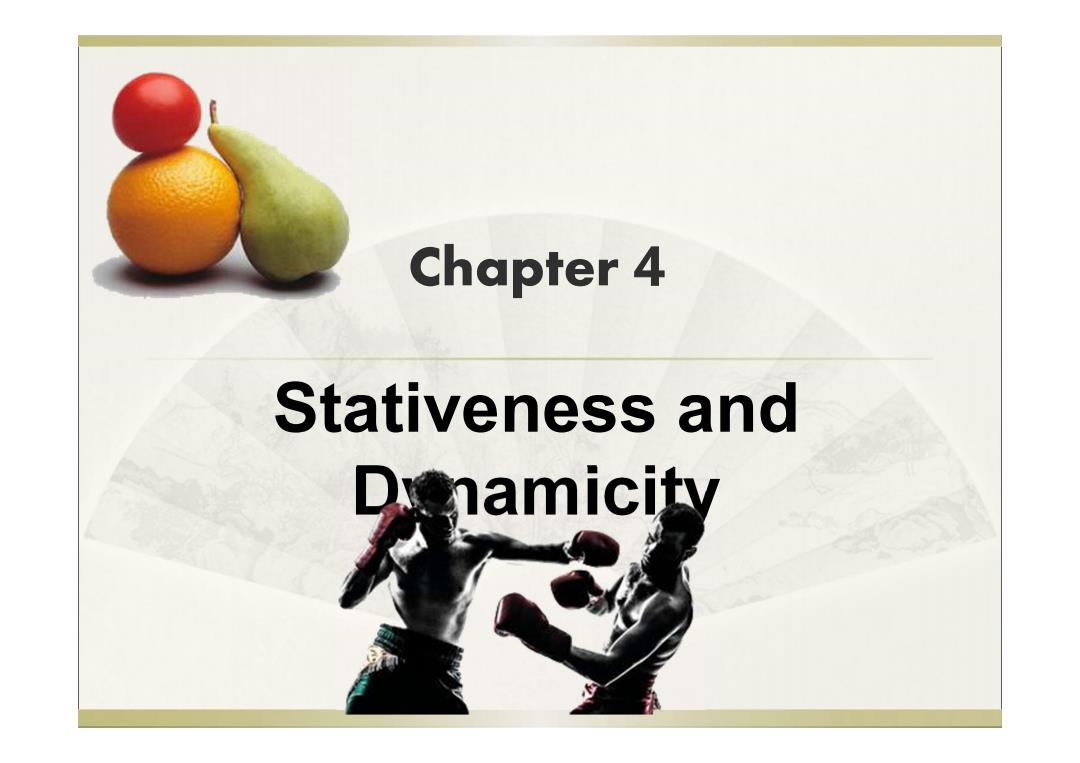
Chapter 4 Stativeness and D:amicitv
Chapter 4 Stativeness and Dynamicity
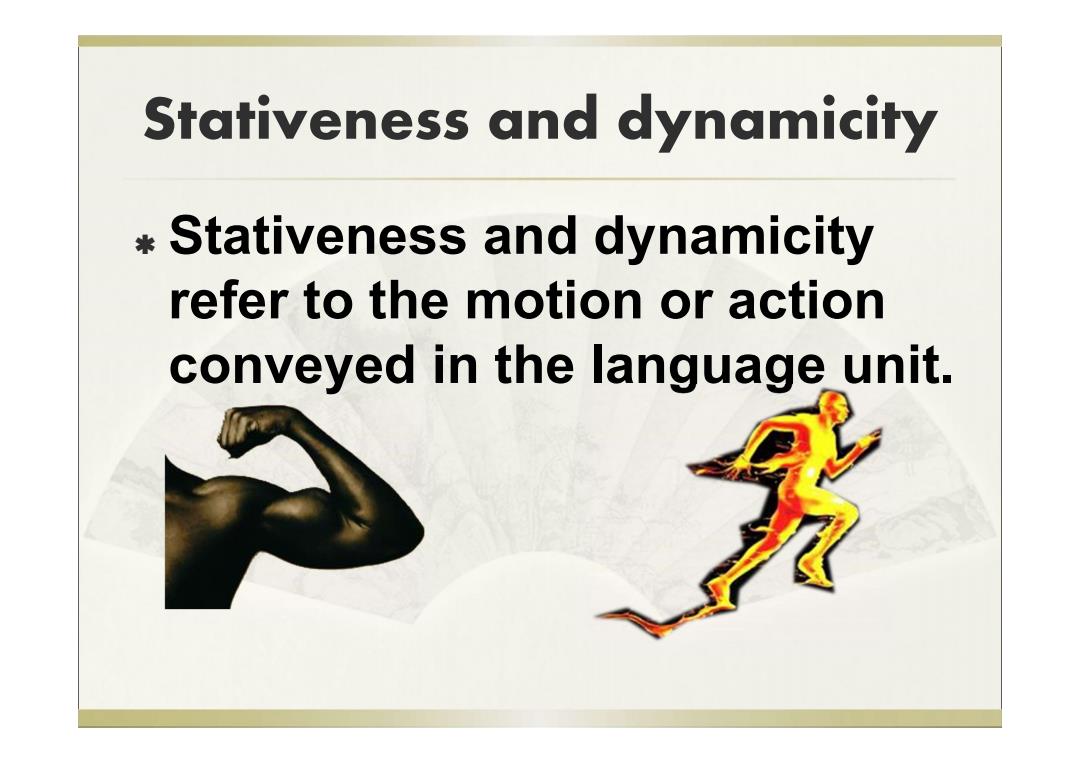
Stativeness and dynamicity Stativeness and dynamicity refer to the motion or action conveyed in the language unit
Stativeness and dynamicity Stativeness and dynamicity refer to the motion or action conveyed in the language unit
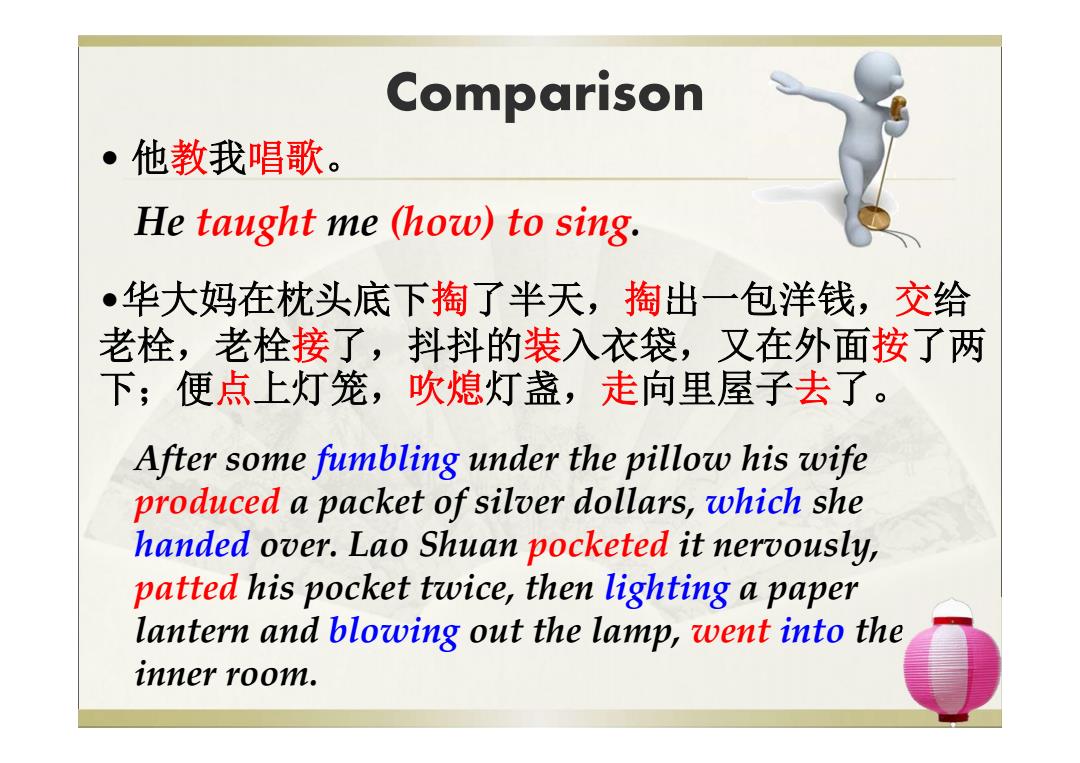
Comparison 他教我唱歌。 He taught me (how)to sing. •华大妈在枕头底下掏了半天,掏出一包洋钱,交给 老栓,老栓接了,抖抖的装入衣袋,又在外面按了两 下;便点上灯笼,吹熄灯盏,走向里屋子去了。 After some fumbling under the pillow his wife produced a packet of silver dollars,which she handed over.Lao Shuan pocketed it nervously, patted his pocket twice,then lighting a paper lantern and blowing out the lamp,went into the inner room
Comparison • 他教我唱歌。 •华大妈在枕头底下掏了半天,掏出一包洋钱,交给 老栓,老栓接了,抖抖的装入衣袋,又在外面按了两 下;便点上灯笼,吹熄灯盏,走向里屋子去了。 He taught me (how) to sing. After some fumbling under the pillow his wife produced a packet of silver dollars, which she handed over. Lao Shuan pocketed it nervously, patted his pocket twice, then lighting a paper lantern and blowing out the lamp, went into the inner room
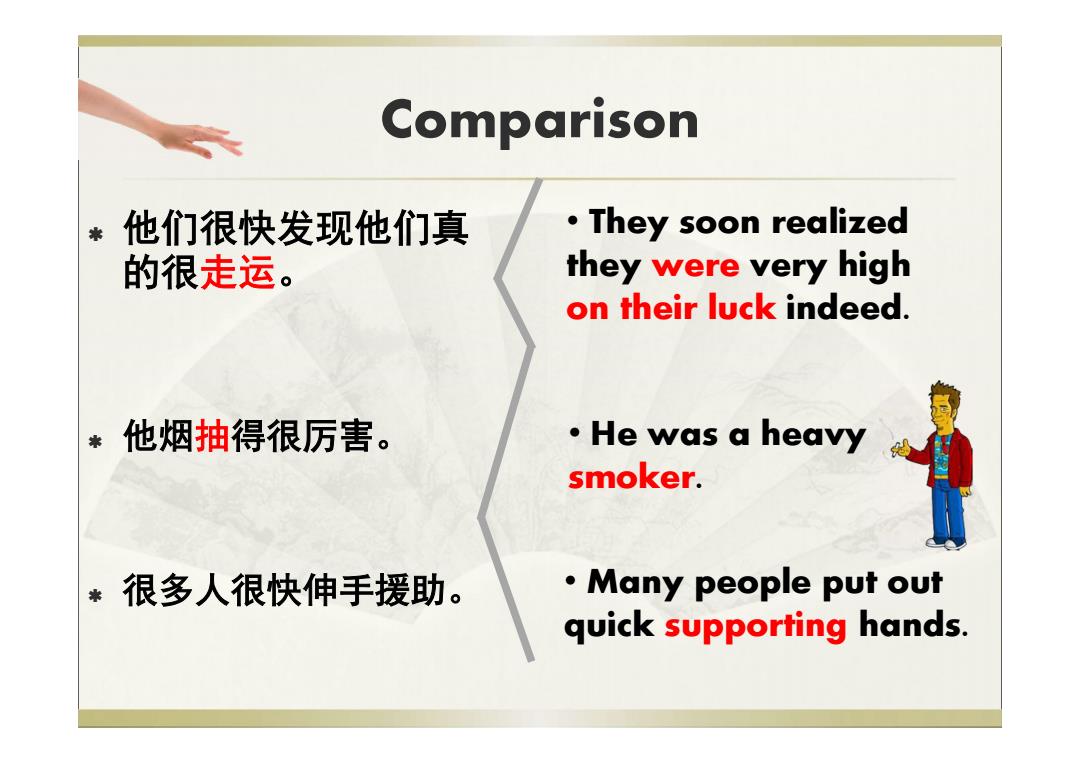
Comparison *他们很快发现他们真 ·They soon realized 的很走运。 they were very high on their luck indeed. *他烟抽得很厉害。 ·He was a heavy smoker. *很多人很快伸手援助。 Many people put out quick supporting hands
Comparison 他们很快发现他们真 的很走运。 他烟抽得很厉害。 很多人很快伸手援助。 • They soon realized they were very high on their luck indeed. • He was a heavy smoker. • Many people put out quick supporting hands
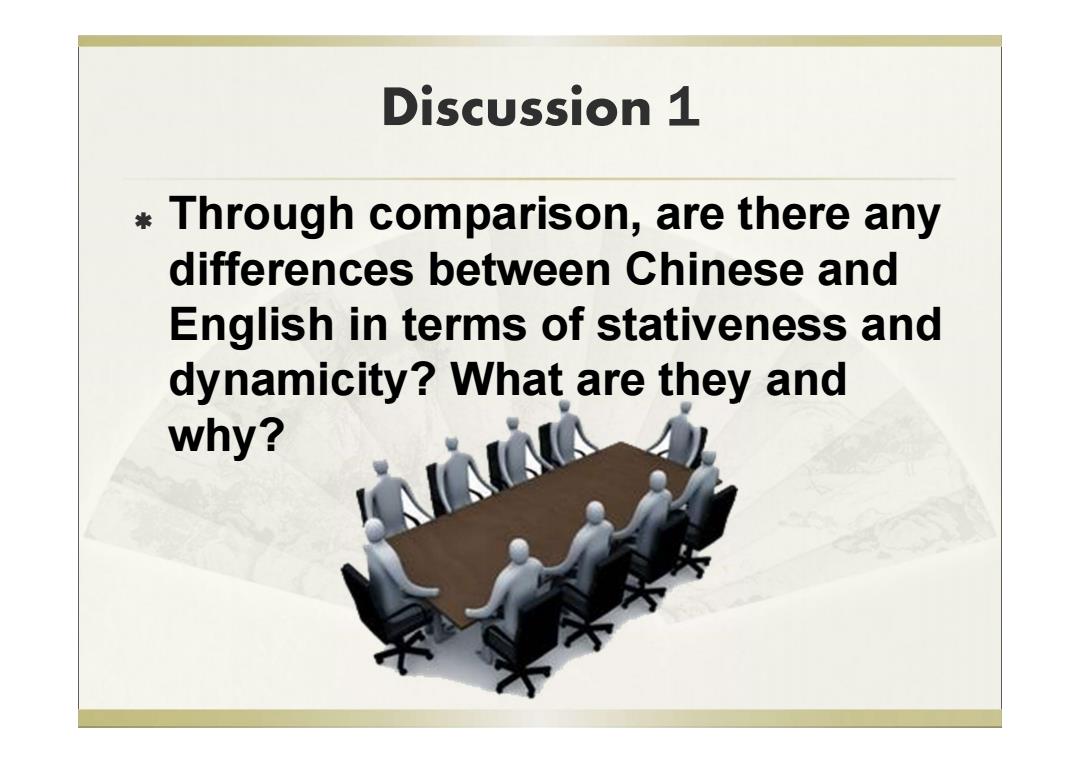
Discussion 1 Through comparison,are there any differences between Chinese and English in terms of stativeness and dynamicity?What are they and why?
Discussion 1 Through comparison, are there any differences between Chinese and English in terms of stativeness and dynamicity? What are they and why?
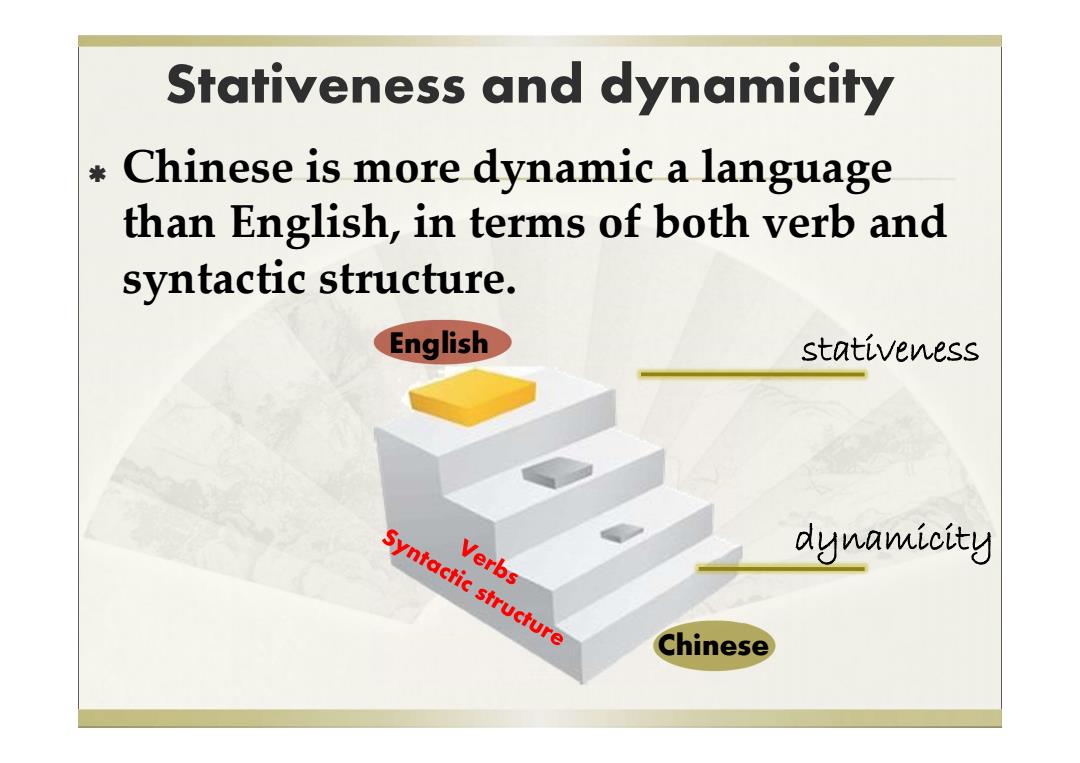
Stativeness and dynamicity Chinese is more dynamic a language than English,in terms of both verb and syntactic structure. English stativeness Syntactic structure Verbs dynamicity Chinese
Chinese is more dynamic a language than English, in terms of both verb and syntactic structure. Stativeness and dynamicity English Chinese stativeness dynamicity
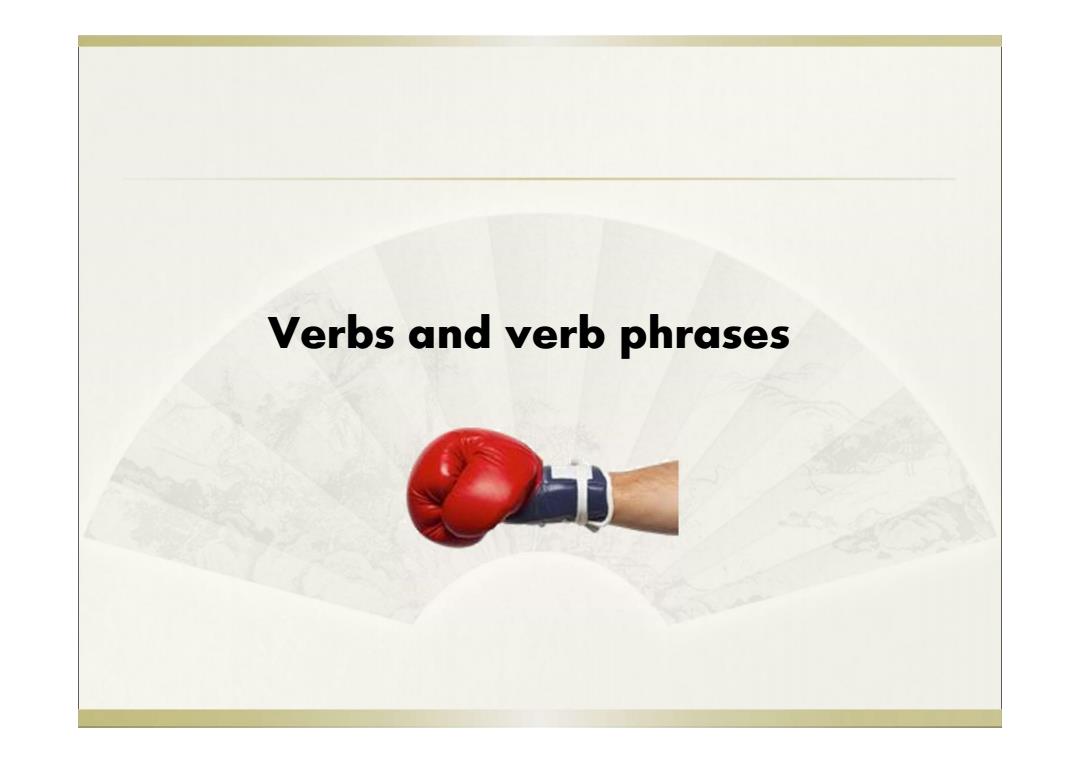
Verbs and verb phrases
Verbs and verb phrases

Comparison *测量(measure),庆祝(celebrate), *思考(think), 欢呼(cheer), *比较(compare),批判(criticize) Repetition or synonymous verbs
Comparison 测量(measure), 庆祝(celebrate), 思考(think), 欢呼(cheer), 比较(compare), 批判(criticize) Repetition or synonymous verbs
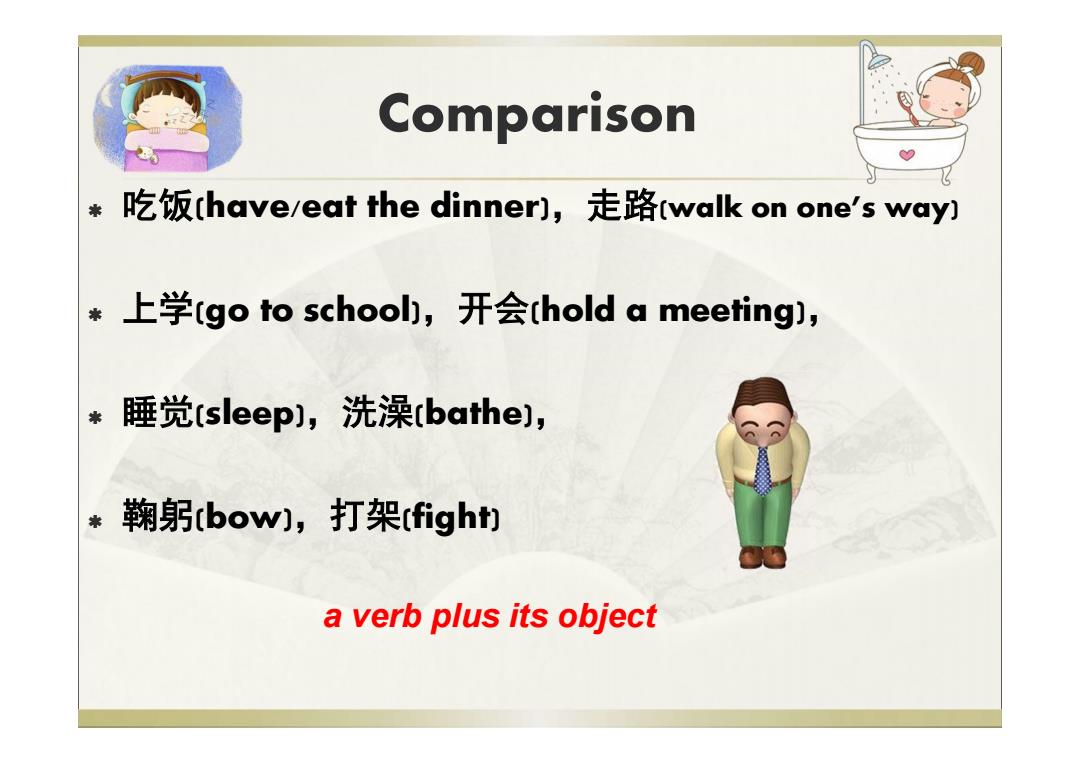
Comparison 孝l 吃饭have/eat the dinner),走路walk on one'sway) *上学(go to school),开会hold a meeting), 睡觉(sleep],洗澡bathe), 鞠躬bow),打架fight) a verb plus its object
吃饭(have/eat the dinner),走路(walk on one’s way) 上学(go to school),开会(hold a meeting), 睡觉(sleep),洗澡(bathe), 鞠躬(bow),打架(fight) a verb plus its object Comparison
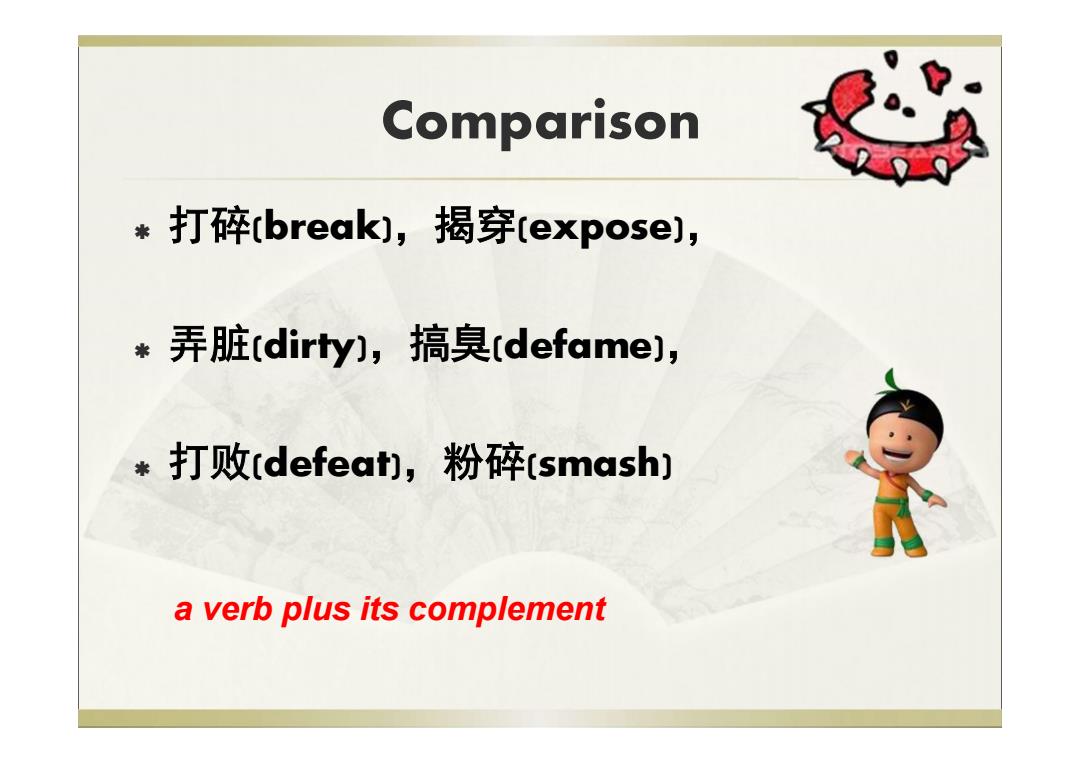
Comparison *打碎break),揭穿expose), *弄脏(dirty),搞臭(defame], *打败(defeat),粉碎smash) a verb plus its complement
打碎(break),揭穿(expose), 弄脏(dirty),搞臭(defame), 打败(defeat),粉碎(smash) a verb plus its complement Comparison